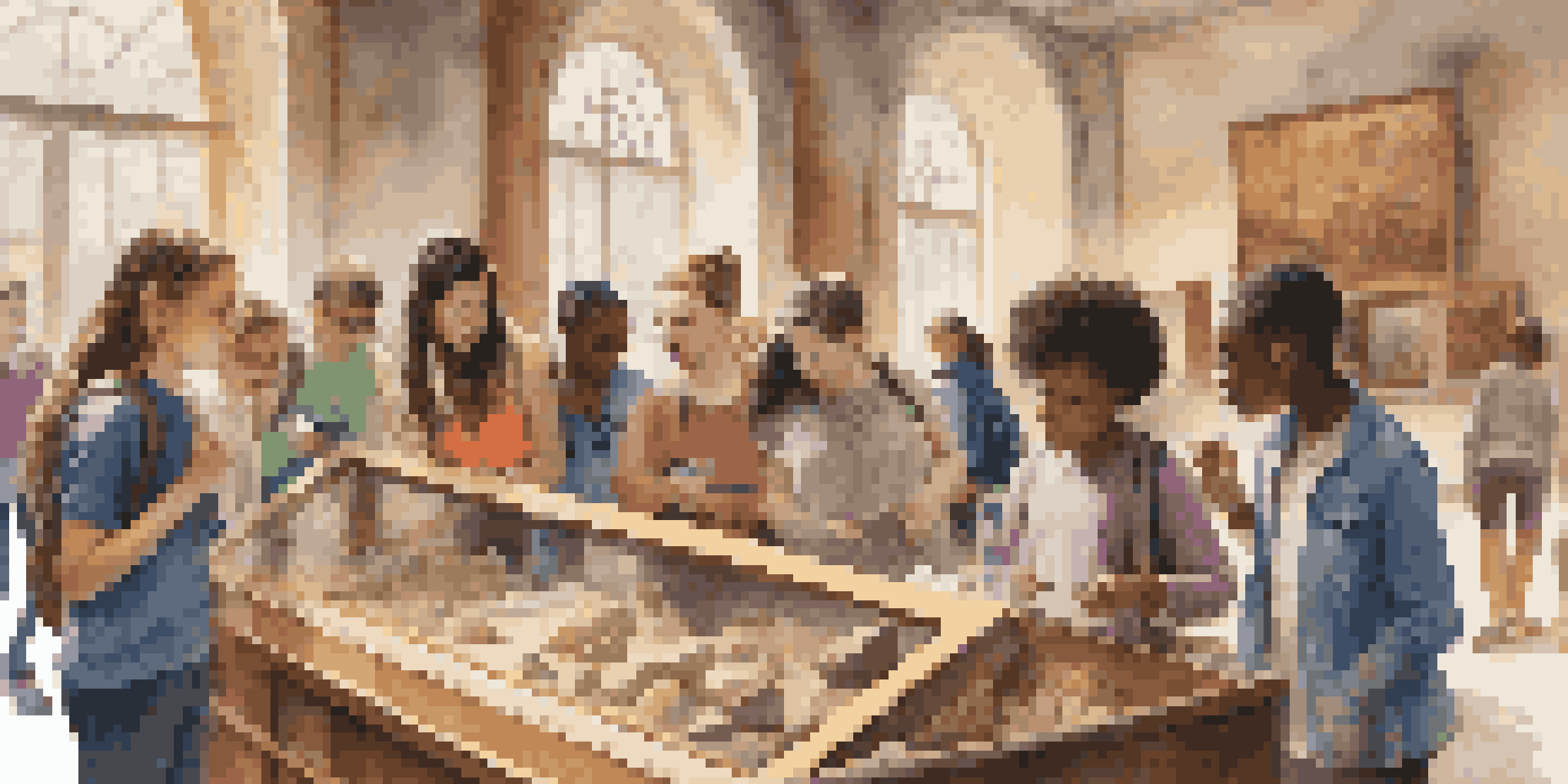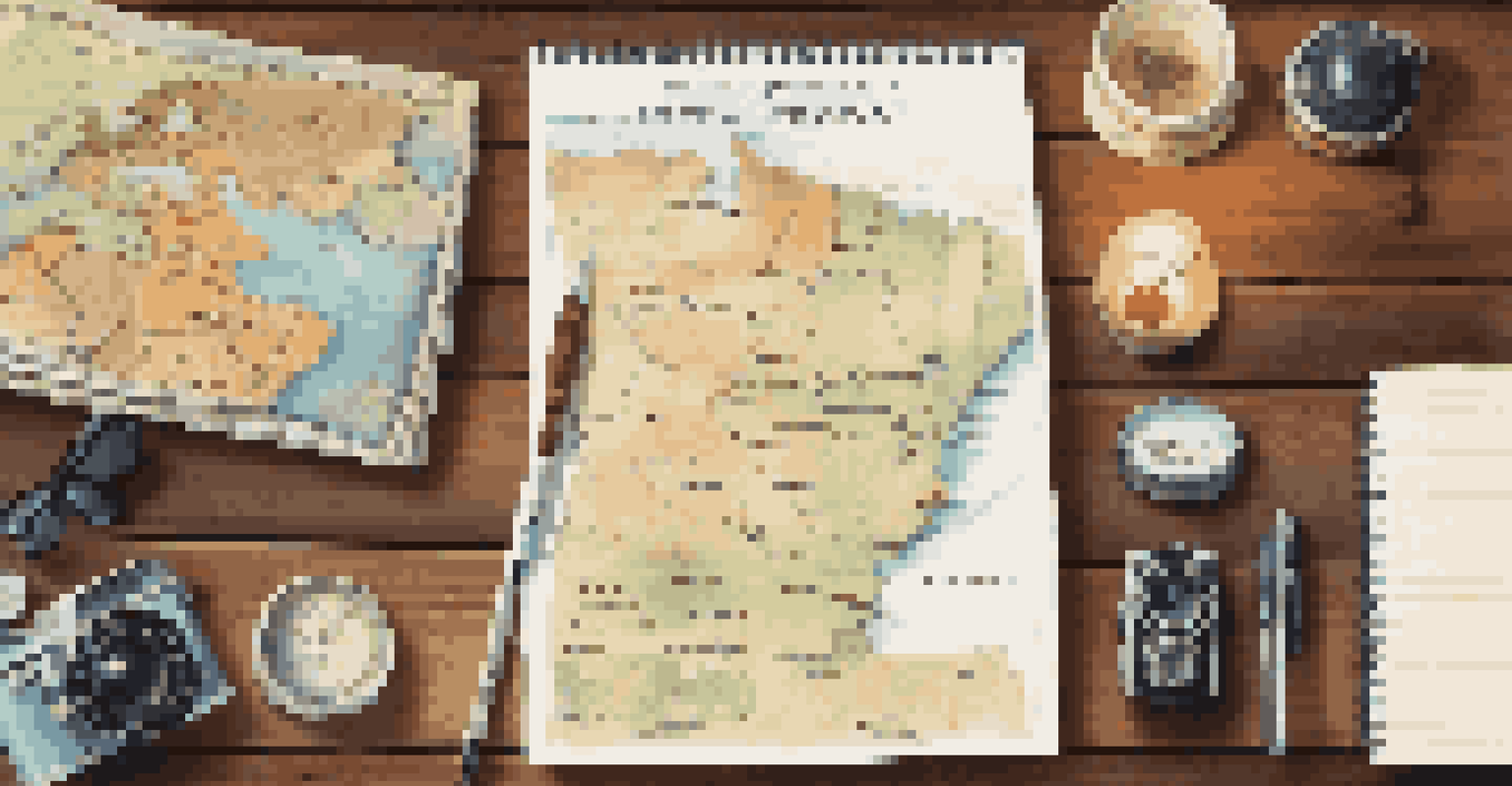Planning Your Educational Tour: Key Considerations

Define Your Educational Goals for the Tour
Before embarking on an educational tour, it's essential to define your goals. Are you aiming to deepen students' understanding of a specific subject or perhaps inspire them through experiential learning? Having clear objectives will guide your planning process and help you select the right destinations and activities.
Education is not the filling of a pail, but the lighting of a fire.
Consider the learning outcomes you want to achieve. For instance, if the goal is to enhance historical knowledge, visiting museums or historical sites should be prioritized. This clarity will not only help in creating a focused itinerary but also ensure that participants see the value in the experience.
Moreover, discussing these goals with students and educators can foster engagement and excitement. When everyone understands the purpose behind the tour, it can transform the experience from a mere trip to an enriching educational adventure.
Budgeting: Balancing Costs and Experiences
Budgeting is a crucial aspect of planning an educational tour. It's important to consider not only the travel expenses but also accommodation, meals, and activity costs. Creating a detailed budget will help you avoid any financial surprises later on.

Think about how to balance cost with the quality of experiences. Sometimes, a slightly higher expense can lead to more enriching activities that align with your educational goals. For example, investing in a guided tour led by an expert can provide insights that enhance the learning experience.
Set Clear Educational Goals
Defining your educational goals before the tour helps create a focused and engaging itinerary.
Additionally, explore options for fundraising or group discounts. Many educational institutions offer grants or sponsorships for school trips, which can significantly ease financial pressure and open up more opportunities for a memorable tour.
Choosing the Right Destinations for Learning
Selecting destinations for your educational tour can make or break the experience. Consider places that not only align with your curriculum but also offer engaging, hands-on learning opportunities. For example, science students might benefit from visiting a research facility or a national park.
The only limit to our realization of tomorrow will be our doubts of today.
It's also important to factor in accessibility and safety when choosing locations. Research each site to ensure it can accommodate your group size and that it adheres to safety regulations. This diligence helps create a worry-free environment for both students and educators.
Lastly, don’t forget to consider cultural relevance. Visiting locations that expose students to diverse perspectives can enrich their understanding of the world and foster a sense of global citizenship.
Creating an Engaging Itinerary for Participants
An engaging itinerary is the backbone of a successful educational tour. It should balance structured activities with free time, allowing students to explore and reflect on their experiences. A well-planned itinerary can keep the group energized and invested in the learning process.
Include a variety of activities that cater to different learning styles. Some students may thrive in hands-on workshops, while others might prefer guided tours or quiet time for reflection. By mixing it up, you can accommodate everyone's preferences and enhance overall engagement.
Budget Wisely for Experiences
Balancing costs with quality experiences ensures that participants gain valuable insights during the tour.
Moreover, consider incorporating reflection periods into the itinerary. Allowing time for students to journal or discuss their experiences can deepen their understanding and retention of what they’ve learned throughout the tour.
Preparing Participants for the Tour Experience
Preparation is key to ensuring participants have a fulfilling tour experience. Prior to departure, hold informational sessions to outline the itinerary, expectations, and any necessary preparations. This helps build excitement and ensures everyone is on the same page.
Encourage participants to research the destinations ahead of time. This not only enhances their appreciation of the sites but also allows them to come with questions and interests. Engaging students in this way promotes a sense of ownership over their learning.
Lastly, remind participants to pack appropriately. Whether it’s comfortable walking shoes or materials for note-taking, being prepared can greatly enhance their comfort and engagement during the tour.
Incorporating Educational Activities During the Tour
Incorporating educational activities during the tour can enhance the learning experience. Plan activities that relate to the educational goals you've set, such as workshops, guided discussions, or interactive exhibits. These hands-on experiences foster deeper understanding and retention.
Consider assigning group projects or presentations based on their experiences. This not only encourages collaboration but also allows students to process and share what they've learned in a meaningful way. It can also serve as a great follow-up activity once the tour is over.
Engage Participants Thoroughly
Incorporating interactive activities and reflection periods enhances learning and retention throughout the tour.
Additionally, utilizing technology can enhance educational activities. Encourage students to document their findings through photography, videos, or blogs, creating a multimedia record of their educational journey.
Evaluating the Tour's Success and Learning Outcomes
After the tour, it’s important to evaluate its success and the learning outcomes achieved. Gathering feedback from participants can provide valuable insights. Consider conducting surveys or group discussions to understand what aspects were most impactful and what could be improved.
Reflecting on the tour's objectives can also help gauge its effectiveness. Did the students meet the learning goals you set? Analyzing this can inform future tours and enhance the planning process.

Finally, celebrate the successes and share the experiences with the wider community. This not only reinforces the value of the tour but also inspires others to engage in similar educational opportunities.